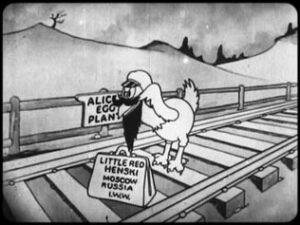
Is “cutthroat economic libertarianism” force-feeding Americans a “homogenized corporate culture?” New York Times opinion columnist Matthew Walther thinks so (“Shopping for ‘Woke-Free’ Beer? Read This,” May 1).
Walther correctly notes that current culture wars over beer brands like Bud Light have largely ignored how many of them are owned by a handful of larger companies — and how all of them operate in a larger marketplace dominated by “generic large-scale corporate profit-seeking.” But is this really “economic libertarianism?”
Walther observes that in the less consolidated industry of the 1970s, regional brewer Coors had real clout to enforce its owners’ union-busting conservatism despite being shunned by “respectable middle-class liberal social circles.” True enough, but the Coors-hauling outlaws of Smokey and the Bandit aren’t so tidily relegated to the same “right-wing” extreme.
After all, the Burt Reynolds vehicle wasn’t the only 1977 blockbuster in which rural restlessness and speedy smuggling defies domineering, corrupt authorities. Yet the Galactic Empire of Star Wars was inspired by the administration of the same Richard Nixon whom the Coors family considered a “squish” (meanwhile, the outlaw truckers on the Seventies screen were a nod to real-life convoys at odds with union bosses not for “feckless paternalism” but for compromising negotiations with plain old bosses).
The distrust of culinary as well as cultural homogenization was less a forerunner of the here’s-the-beef presidency of Coors favorite Ronald Reagan than an echo of the hippies busted for improper disposal of a communal meal in Alice’s Restaurant — or, for that matter, a parallel to the peanut seller then in the Oval Office decriminalizing homebrews.
Walther borrows the name of the 1980 book Human Scale by Kirkpatrick Sale to denote the antithesis of the globalized economy. Yet Sale’s less-remembered-than-its-title tome argued that the “growth of conglomerates and ogliopolies” would be halted if “the myriad government supports favoring large (and therefore largely unresponsive) businesses were withdrawn.”
The impersonality of commerce might seem to make the pursuit of any value system an exercise in futility. While Anheuser-Busch’s all-Americanism is diluted by the merger with Belgian Interbrew and Brazilian AmBev, groovy Ben & Jerry’s has been gobbled up by the equally multinational Unilever. Even the “staid Midwestern brands” and built-in-the-USA autos which Walther recalls as having been the acceptable alternatives to the Coors can and the “foreign car” were built from the raw materials of a worldwide market.
Yet the very tendency to enmesh consumers into webs more far-flung than they can trace is in fact a strength. As Milton Friedman put it: “The great virtue of a free market system is that it does not care what color people are; it does not care what their religion is; it only cares whether they can produce something you want to buy. It is the most effective system we have discovered to enable people who hate one another to deal with one another and help one another.”
New Yorker Joel Schlosberg is a senior news analyst at The William Lloyd Garrison Center for Libertarian Advocacy Journalism.
PUBLICATION/CITATION HISTORY
- “Smokey Versus the Market” by Joel Schlosberg, CounterPunch, May 5, 2023
- “Smokey versus the market” by Joel Schlosberg, Mat-Su Valley Frontiersman [Wasilla, Alaska], May 5, 2023
- “Smokey versus the market” by Joel Schlosberg, The Times and Democrat [Orangeburg, South Carolina], May 11, 2023


